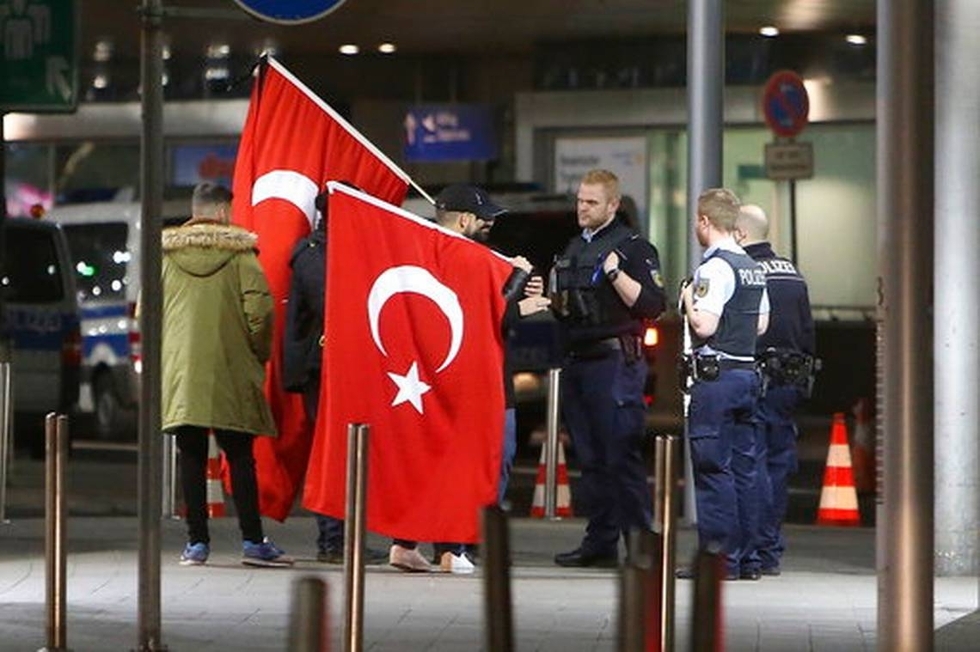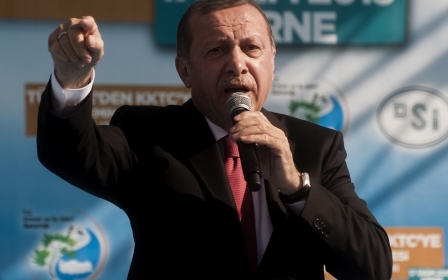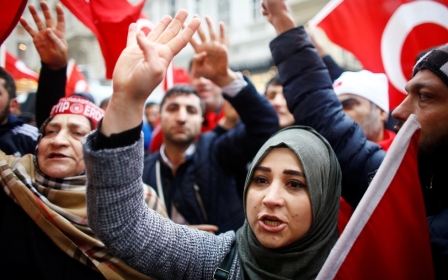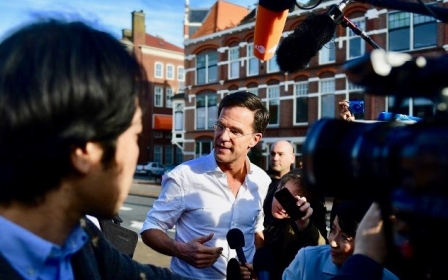Germany, the Netherlands revise Turkey travel advice

Germany and the Netherlands revised travel advice for Turkey this week amid a deepening row over European cancellations of events by Turkish officials aimed at rallying support for a vote to expand the powers of Turkish President Tayyip Erdogan.
The Dutch foreign ministry urged citizens visiting Turkey to exercise caution in revised travel advice issued late on Sunday.
"There have been diplomatic tensions between Turkey and the Netherlands," the ministry wrote. "Be alert and avoid large crowds."
The German foreign ministry, in an updated notice posted on its website on Monday, said travellers should expect heightened tensions and protests ahead of the 16 April referendum.
"Travellers are therefore advised to stay away from political rallies and large crowds," the ministry said. It had previously advised citizens about heightened security risks in Turkey following last year's failed coup attempt.
Turkey on Monday threatened diplomatic sanctions against the Netherlands after Erdogan accused the Dutch government of acting like "Nazi remnants" for barring his ministers from addressing expatriate Turks to drum up votes.
Erdogan on Monday accused German Chancellor Angela Merkel of backing terrorists. in an interview with A-Haber television, Erdogan bluntly stated: "Mrs Merkel, you are supporting terrorists."
He accused Berlin of not responding to 4,500 dossiers sent by Ankara on terror suspects, including those linked to Kurdish militants and the failed coup in Turkey last year.
"Mrs Merkel, why are you hiding terrorists in your country?... Why are you not doing anything?"
Merkel's spokesman described the accusations as "absurd", saying the chancellor had no intention of taking part in a "competition of provocations".
Later on Monday, Deputy Prime Minister Numan Kurtulmus said that Turkey will not allow the Dutch ambassador to Ankara to return and will suspend high-level ties until The Netherlands meets Turkey's conditions over holding rallies abroad ahead of a referendum.
"It was decided that until the things we have said are fulfilled, the Dutch ambassador will not be allowed to return," Kurtulmus said after a cabinet meeting in Ankara.
Ambassador Kees Cornelis van Rij is currently outside of the country, with business being handled by the charge d'affaires.
The travel advisories come as Turkey tries to reverse a 30 percent drop in foreign visitors and revenues last year.
The number of foreign visitors to Turkey fell to 25.4 million in 2016, the lowest in nine years, after a spate of bombings and the failed coup in July discouraged tourists.
Germany is the source of around 15 percent of Turkey's tourists and trade visitors at last week's ITB travel fair in Germany said they had been slashing prices to make up for a drop in bookings.
Dutch visitors are also important to Turkey's tourism industry, but travel has been dropping. Some 900,000 Dutch people travelled to Turkey last year, down from 1.2 million in 2015.
New MEE newsletter: Jerusalem Dispatch
Sign up to get the latest insights and analysis on Israel-Palestine, alongside Turkey Unpacked and other MEE newsletters
Middle East Eye delivers independent and unrivalled coverage and analysis of the Middle East, North Africa and beyond. To learn more about republishing this content and the associated fees, please fill out this form. More about MEE can be found here.




